Buy Glentek (riluzole) Online For Sale
DISEASE INDICATIONS: Amyotrophic Lateral Sclerosis (ALS)
MANUFACTURER: Glentek
USAGE: Oral
MEDICINE APPROVED BY:
European Medical Agency (EMA)
Therapeutic Goods Administration (TGA)
Medicines & Healthcare products Regulatory Agency (MHRA)
The Medicines Evaluation Board (MEB)
Riluzole is a medication that has been approved by the US FDA for the treatment of amyotrophic lateral sclerosis (ALS), a progressive neurological disorder.
What is Riluzole for?
Riluzole is a medication that is primarily used to treat amyotrophic lateral sclerosis (ALS), also known as Lou Gehrig’s disease. ALS is a neurodegenerative disease that affects the motor neurons in the brain and spinal cord, leading to muscle weakness, atrophy, and eventually paralysis and respiratory failure. Riluzole has been shown to improve survival and slow the progression of ALS symptoms, although it is not a cure. Riluzole works by reducing the release of the neurotransmitter glutamate, which can be toxic to motor neurons in high concentrations. By reducing glutamate levels, riluzole may help to protect motor neurons from damage and slow the progression of ALS. Riluzole has also been investigated as a potential treatment for other neurological disorders, such as Alzheimer’s disease and bipolar disorder, although these uses are not yet approved by regulatory agencies.
How does Riluzole work?
Riluzole is thought to reduce the release of the neurotransmitter glutamate, which can be toxic to motor neurons in high concentrations. By reducing glutamate levels, riluzole may help to protect motor neurons from damage and slow the progression of amyotrophic lateral sclerosis (ALS).
In addition, riluzole has been shown to have neuroprotective effects by modulating the activity of ion channels and receptors in the nervous system. For example, riluzole has been shown to block voltage-gated sodium channels, which are involved in the transmission of nerve impulses, and to enhance the activity of gamma-aminobutyric acid (GABA) receptors, which are inhibitory receptors in the brain.
Riluzole has also been shown to have anti-inflammatory effects and to inhibit the formation of free radicals, which can contribute to oxidative stress and cell damage. Overall, the combination of these different mechanisms of action is thought to contribute to the ability of riluzole to slow the progression of ALS and to improve survival in people with the disease.
How is Riluzole taken?
Riluzole is typically taken orally as a tablet, with or without food. The usual starting dose is 50 mg twice daily, taken at least one hour before or two hours after meals. The dose may be gradually increased to a maximum of 100 mg twice daily based on the individual’s response and tolerance to the medication.
It is important to take riluzole exactly as prescribed, and to not change the dose or stop taking the medication without consulting a healthcare provider. It may take several weeks or months for the full effects of riluzole to be seen, and it is important to continue taking the medication as directed even if symptoms do not improve.
Riluzole should be stored at room temperature (between 20-25°C or 68-77°F) in a tightly closed container, protected from light and moisture.
Are there any known side effects of Riluzole?
Yes, there are potential side effects associated with the use of riluzole. The most common side effects include:
– Nausea
– Vomiting
– Abdominal pain
– Diarrhea
– Weakness
– Headache
– Dizziness
– Elevated liver enzymes
Less common side effects may include:
– Allergic reactions
– Confusion
– Slurred speech
– Double vision
– Uncontrolled muscle movements
– Difficulty breathing
– Blood disorders
It is important to inform a healthcare provider if any side effects are experienced while taking riluzole. In some cases, it may be necessary to adjust the dose or discontinue the medication.
Clinical trials
Glentek Riluzol and Rilutiek both contain the same active ingredient, riluzole. The FDA, EMA, and TGA have approved riluzole for the treatment of ALS based on two main double-blind studies. The studies involved patients with familial or sporadic ALS, a disease duration less than 5 years, and a baseline forced vital capacity greater than or equal to 60% of normal. Another study investigated riluzole’s efficacy in patients at a late stage of the disease and the results showed no significant difference in survival time and motor function compared to placebo. The main efficacy outcome measure in the studies was the median survival time, which showed improvement with riluzole compared to placebo. However, measures of muscle strength and neurological function did not show a benefit. The studies showed that a dosage of 100 mg/day was more effective than a placebo, while 50 mg/day was insignificant and 200 mg/day was comparable to 100 mg/day.
| Package | 56 tablets of 50 mg |
|---|
Be the first to review “Buy Glentek (riluzole) Online For Sale” Cancel reply
Related products
Neurology
Neurology
Neurology
Neurology


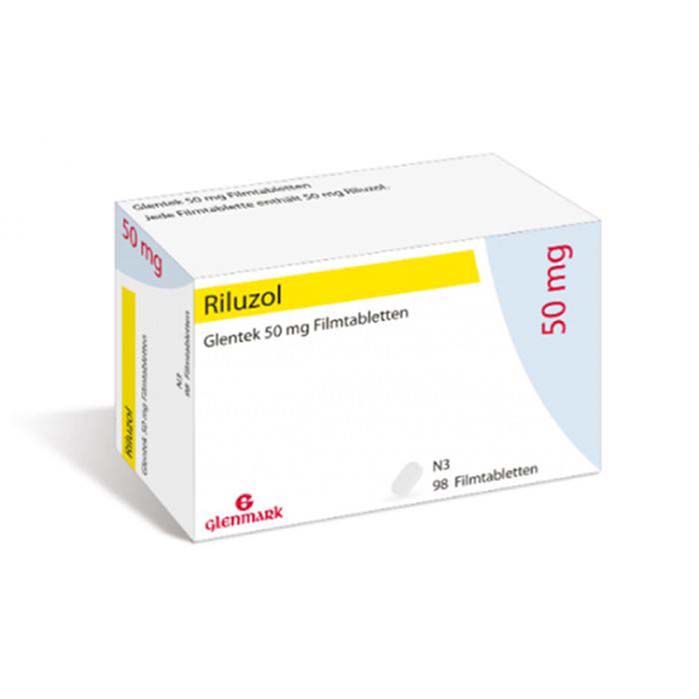
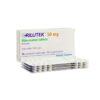
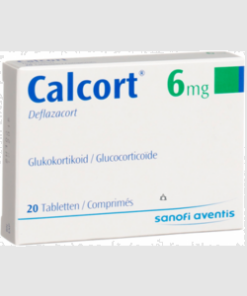
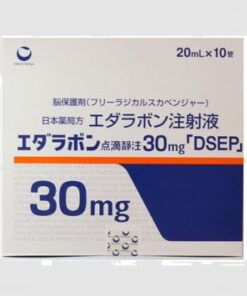
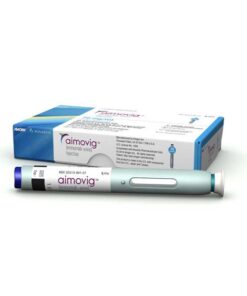

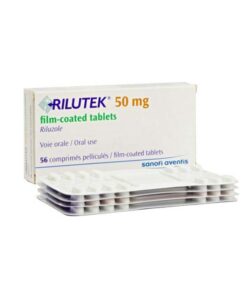

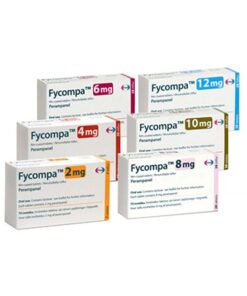

Reviews
There are no reviews yet.